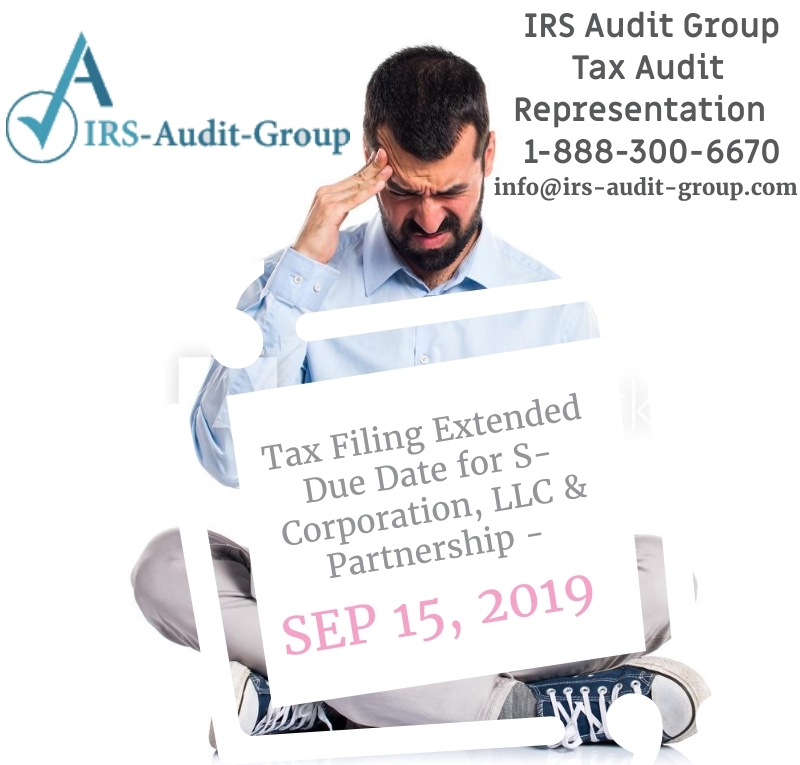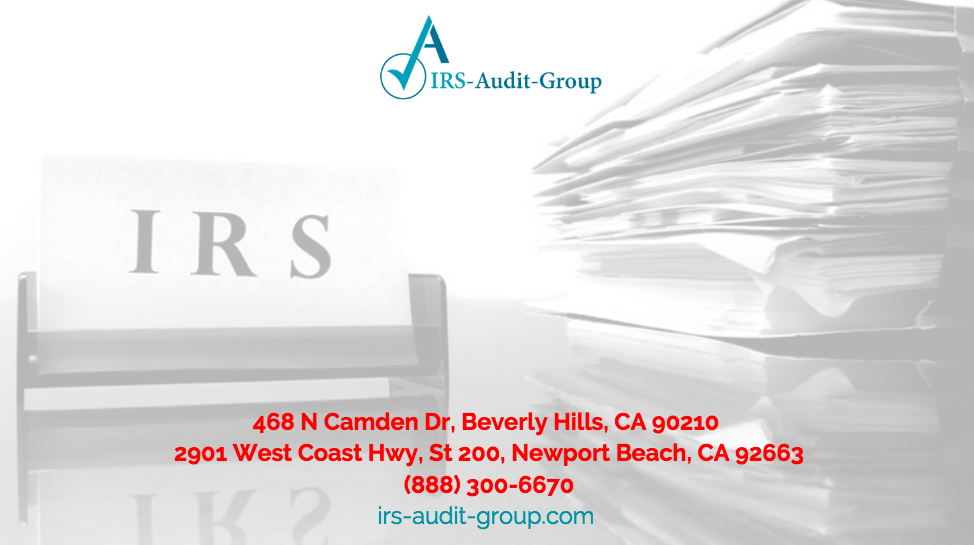Generally, S Corporation, LLC & Partnership are required to file tax return before March 15 2019 for the calendar year 2018-2019. While filing such return, S corporation needs to file Form 1120S and attach Schedule K-1 for its shareholders. An S-corporation also need to file payroll tax returns, including Form 940, Form 941, and other informational returns such as Form 1099 while filing its return.
In the case of LLC, it has four different ways to file its tax returns as given below;
- LLCs as a Sole Proprietorship – file Schedule C on the owner’s personal tax return.
- LLCs as a partnership – file partnership tax return using form 1065.
- LLCs that choose corporate tax treatment – file either an S-corporation tax return (Form 1120S) or a C-corporation tax return (Form 1120).
Also all partnerships are required to report its revenue and expenses by using Internal Revenue Service Form 1065 every year. The due date for filing Form 1065 used to be April 15th of every year.
Extended due dates for S Corporation, LLC & Partnership
There are situations where certain businesses cannot file the tax return before the due date. The IRS provides extension in such situations. However, such extensions should be properly availed using Form 7004 before the tax filing due date.
S-corporations and LLC can request additional six months to file its Form 1120S using Form 7004. With such extension the due date for S-corporation is now Sep 15 2019. Partnerships can also request an automatic five-month extension by filing Form 7004 before the due date of Form 1065 i.e. April 15 2019.
Remember, the IRS will never send letter if the extension is approved. However IRS will send a notice only if it is disallowed. uring such automatic extension, the IRS has all the rights to terminate the extension at any time by sending a letter 10 days before the termination date mentioned in the letter.
How to file for extension?
Before filing the Form 7004, it is advisable to arrive at tentative tax amount and the amount you like to pay immediately. This will be useful to fill the balance amount to be paid before Sep 15 2019 in the Form 7004.
There is an option to file Form 7004 through US postal service or electronically. It is advisable to use registered post to secure receipt as acknowledgment or proof. If you are an S-corporation, LLC and Partnership, then the Form 7004 for 1120S and 1065 can be sent to IRS Center, UTAH.
Penalties for Late Payment of Tax
There are certain penalties for late payment of tax as follows;
- If S-corporations do not file Form 1120S by the due date or by the extended due date, then the IRS will impose a minimum penalty of $195 for each month or part of the month the return is late multiplied by the number of shareholders
- When the S-corporation fails to file Form 941, and it has any unpaid tax balance, a penalty of 5 to 25% may be assessed on the balance for each month or partial month the tax is late
- Similar penalties apply to filing Form 940 after the due date as well.
S-corporations can get audited by IRS mainly for minimizing the payroll taxes. During the audit the IRS will always try to re-structure portion or all of the profit distributions as salary compensation, thus allowing them to collect payroll taxes on the salary side. If you have received a letter from IRS for an S-corporation audit, know your rights and act accordingly. Consulting an IRS expert is what should be your next step. IRS Audit Group can help you with your tax audit representation. Contact us for free consultation with one of our Tax attorney team members.
E-mail to: – [email protected]/ Call Us @1-888-300-6670










